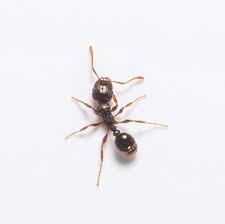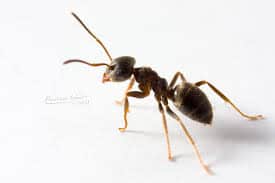Ants are some of the most persistent household pests, capable of turning a peaceful home into a bustling pathway of foragers. Whether it’s the common black ant searching for crumbs or the more destructive carpenter ant burrowing through wood, knowing how to eliminate and prevent them is crucial for homeowners.
In this guide, we’ll explore natural, chemical, and preventive methods for getting rid of ants in the house, ensuring your home remains ant-free in the long term.
Why Ants Invade Homes
Ants, like most creatures, are driven by the need to find food, water, and shelter. Your home provides all these in abundance, making it an ideal target. Understanding the reasons behind an ant invasion is the first step towards effective ant control in the house.
1. Food Sources
Ants are opportunistic feeders. They can thrive on a variety of food sources, including sugary items like juice spills, crumbs, and overripe fruits. Greasy and protein-rich foods also attract them, depending on the species.
2. Water Sources
Leaky pipes, condensation around windows, and damp areas in bathrooms and kitchens create a perfect hydration spot for ants. Once they find a reliable water source, they will leave a pheromone trail for other ants to follow.
3. Shelter
Ants can enter through the tiniest of cracks and crevices. Gaps in window frames, unsealed doors, or even cracks in your foundation serve as entry points for these small invaders.
Identifying Ant Species in Slough
Before choosing a removal method, it’s helpful to identify the type of ants you’re dealing with. Different species have different behaviours, and some require specialised treatments.
Common Ant Species in Slough Homes:
Pavement Ant (Tetramorium caespitum): Often found nesting in cracks in pavements and driveways, these ants can make their way indoors seeking food.

Black Garden Ant (Lasius niger): The most common ant found indoors. These ants forage for sugary substances and can quickly form long trails.

Pharaoh Ant (Monomorium pharaonis): Tiny, light brown ants that thrive in warm environments, often found in kitchens.

Carpenter Ant (Camponotus species): Larger ants that burrow into damp wood, causing structural damage over time.

Why You Need a Professional for Ant Control
As ants can cause property damage and pose health risks, it’s crucial to approach ant control with professional solutions. DIY methods often lack the efficacy needed to fully eradicate infestations. Professional pest control service, offers comprehensive solutions that effectively prevent ants from returning. Professional treatments target the entire colony, providing long-term relief and protecting your home from potential damage and health risks
Chemical Solutions for Ant Control
While natural methods are often sufficient for small infestations, larger or more persistent problems may require chemical treatments.
1. Ant Baits
Ant baits are highly effective because they take advantage of the foraging behaviour of ants. Worker ants carry the bait, which contains a slow-acting poison, back to the colony. Over time, this method eliminates the entire nest, including the queen. Place ant baits near entry points, under sinks, and along trails where ants are most active.
2. Insecticide Sprays
Insecticides can provide immediate results by killing ants on contact. Sprays like permethrin or pyrethrin-based solutions are commonly used. However, these sprays often provide short-term relief as they do not eliminate the entire colony.
3. Ant Traps
Ant traps are pre-filled with bait and can be placed in problem areas around the home. Similar to ant baits, these traps lure ants, who then carry the poisoned bait back to the nest.
4. Professional Pest Control
For severe infestations or recurring problems, calling a professional pest control service may be the best option. Pest control professionals like Pest Dominion, based in Slough, can identify the specific species, locate the colony, and apply targeted treatments that eradicate the ants and prevent future infestations. Pest Dominion’s experienced team uses advanced techniques and state-of-the-art equipment to target even the most challenging infestations.
By choosing a professional service like Pest Dominion, you not only ensure that the infestation is eradicated, but you also gain expert advice on preventing future issues, ensuring your home remains ant-free for the long term.
Preventing Ants from Returning
Prevention is just as important as elimination when it comes to ant control in the house. Here are some steps you can take to make your home less attractive to ants.
1. Seal Entry Points
Inspect your home for cracks, gaps, and holes where ants could potentially enter. Use caulk to seal cracks in walls, around window frames, and along baseboards. Ensure that door sweeps are properly installed and weather stripping is intact.
2. Eliminate Food Sources
Keep your home clean and free of food debris. Store food in airtight containers, wipe down countertops after meal preparation, and regularly vacuum floors to remove crumbs. Avoid leaving pet food out for extended periods.
3. Fix Water Leaks
As ants are attracted to moisture, fixing leaks in pipes, faucets, and gutters can help reduce their access to water. Make sure your home is well-ventilated to prevent condensation from building up in high-moisture areas like the bathroom or kitchen.
4. Outdoor Maintenance
Trim tree branches and shrubs that are in contact with your home, as these can serve as bridges for ants. Keep garden beds and mulch away from the foundation, as ants often build nests in these areas.
Special Tips for Specific Areas of the House
Different rooms in the house may require different ant control strategies. Here’s how to handle ants in the kitchen, bathroom, and living areas.
1. Kitchen
The kitchen is a hotspot for ants due to the presence of food. Wipe up spills immediately, store sweets in sealed containers, and regularly empty bins. Pay close attention to the areas behind and under appliances, as crumbs can accumulate in these hidden spots.
2. Bathroom
Ants may enter the bathroom in search of water. Repair leaks in faucets and pipes, and avoid leaving standing water in sinks or tubs. Wipe down surfaces regularly, and use vinegar or peppermint oil to clean the floors and counters.
3. Living Room and Bedrooms
Ants are less likely to infest living rooms and bedrooms unless food is left out. Avoid eating in these areas, and ensure all food is consumed in designated dining spaces. Vacuum regularly and keep the area free of crumbs.
Final Thoughts
Getting rid of ants in the house is a process that requires persistence and a combination of strategies. By understanding the root causes of the infestation, using a mixture of natural and chemical treatments, and taking preventative measures, you can ensure that your home stays ant-free.
For severe infestations or expert assistance, consider reaching out to Pest Dominion. Their professional team provides comprehensive ant control solutions tailored to your needs, ensuring a long-term, ant-free environment. Contact Pest Dominion today for a consultation and to protect your home from future infestations

